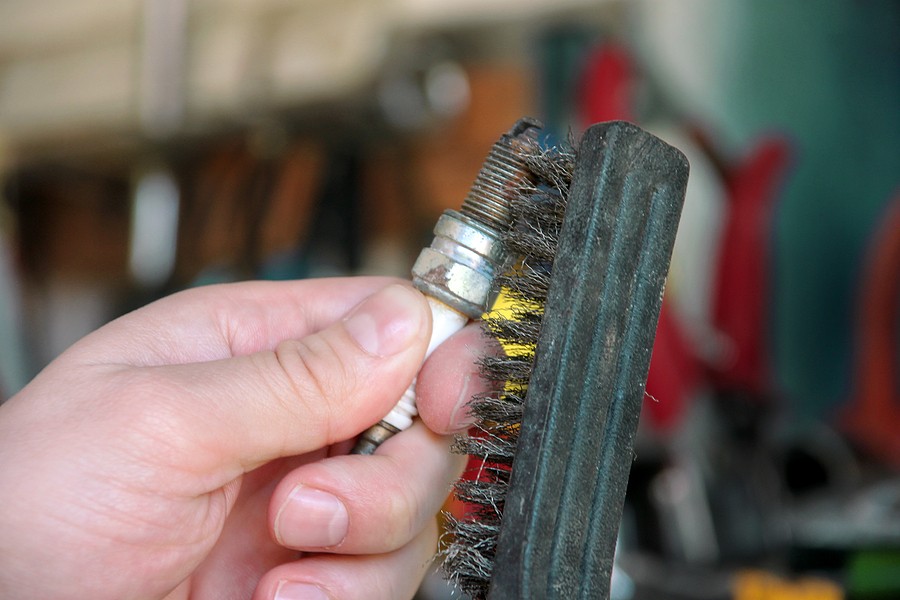Spark plugs are like the unsung heroes of a vehicle’s engine. These small components play a crucial role in the ignition process, ensuring that your car starts smoothly and performs efficiently. However, like every other part in your vehicle, spark plugs can wear out or malfunction. Recognizing the signs of a failing spark plug can save you from unexpected breakdowns and costly repairs.
1. Reduced Fuel Efficiency
When spark plugs are in optimal condition, they burn fuel very efficiently. However, as they wear out, their performance diminishes.
1.1. Increased Fuel Consumption
Over time, you might notice that you’re refueling more often, even if your driving habits haven't changed. This could be a clear indication that the spark plugs are not igniting the fuel in the combustion chamber as they should.

1.2. Incomplete Combustion Process
Bad spark plugs can lead to incomplete combustion, causing the engine to consume more fuel than necessary. If you notice black smoke coming out of the exhaust, it could be due to unburnt fuel, signaling a spark plug issue.
1.3. Impact on the Wallet
With the rising costs of fuel, decreased fuel efficiency can start to dent your monthly budget. Addressing spark plug issues early can help you save money in the long run.
1.4. Environmental Concerns
Bad spark plugs can increase your vehicle's emissions, contributing to pollution. This not only affects the environment but could also lead to failed emissions tests in regions where they are mandatory.

2. Engine Misfires
Engine misfires can be quite alarming, producing intermittent stopping and jerking motions while driving.
2.1. Causes of Misfires
While there can be various reasons for engine misfires, worn-out spark plugs are among the common culprits. They can cause interruptions in the engine's power delivery.
2.2. Impact on Engine Health
Frequent misfires can damage the engine and its components. Over time, this can lead to more significant, costlier problems.
2.3. Decreased Performance
Misfires can significantly reduce the vehicle’s performance. If you notice your car isn't accelerating as it used to, it's worth checking the spark plugs.

2.4. Strain on the Catalytic Converter
Engine misfires can overload the catalytic converter, as it tries to burn off the excess unburned fuel. This might lead to an overheated converter, resulting in expensive repairs.
3. Hard Starting or Poor Idling
The state of the spark plugs directly impacts how your car starts and idles.
3.1. Prolonged Cranking
If your car takes longer to start or requires more cranking, it might be due to faulty spark plugs.
3.2. Rough Idling
A rough, vibrating idle is not just annoying; it could be an indication that your spark plugs are deteriorating.
3.3. Cold Weather Challenges
During cold months, if spark plugs are faulty, you might face even more starting challenges, given that engines demand more power to start in colder temperatures.

3.4. Impact on Battery Life
Repeated hard starts can drain the battery faster. If you find your battery dying quicker than usual, it might be worth checking the spark plugs.
4. Noticeable Drop in Performance
Spark plugs influence various performance metrics of your vehicle.
4.1. Reduced Acceleration
If your car doesn’t pick up speed as swiftly as it used to, worn-out spark plugs could be the reason.
4.2. Struggle at Higher Speeds
When driving at higher speeds, if the vehicle doesn’t seem to respond or feels sluggish, it could be due to failing spark plugs.

4.3. Difficulty Climbing Hills
Bad spark plugs can make it hard for the vehicle to climb inclines. If you find your car struggling uphill, it's a red flag.
4.4. General Lack of Responsiveness
If the vehicle doesn't respond quickly to your commands, especially when you press the accelerator, the spark plugs might be at fault.
5. Sound Anomalies
Your car communicates its health, often through sounds.
5.1. Rattling or Knocking Noises
A consistent knocking or rattling sound coming from the engine could be due to misfiring caused by bad spark plugs.
5.2. Popping Sounds
Popping sounds might indicate that the fuel is detonating in more than one place in the combustion chamber, possibly because of a spark plug issue.

5.3. High-pitched Screeching
While there could be many reasons for a high-pitched sound from the engine, don’t rule out spark plug issues.
5.4. Silence
In extreme cases, if a spark plug completely fails, it might prevent the engine from starting, leading to complete silence.
6. Visual Signs
Physical inspections can also reveal spark plug issues.
6.1. Discoloration
Remove the spark plug and inspect its color. A blackened plug could indicate carbon deposits, signaling it’s time for a change.
6.2. Eroded Electrodes
The central and ground electrodes can erode over time. If they look worn out or thin, replace the plug.
6.3. Oil or Ash Deposits
If you see oil or ash deposits on the spark plug, it could be due to oil leakage in the combustion chamber.

6.4. Physical Damage
Cracks, chips, or other visible damages on the spark plug are definite signs of replacement.
7. Check Engine Light
One of the most straightforward indications of engine trouble can be the check engine light.
7.1. Causes for the Light
While numerous reasons can trigger the check engine light, spark plug issues are among the common culprits.
7.2. Importance of Early Diagnosis
If the check engine light illuminates, it’s essential to diagnose the issue early to prevent further complications.
7.3. Modern Diagnostic Tools
Modern OBD-II scanners can provide specific fault codes related to spark plug issues, helping in precise diagnosis.

7.4. Professional Inspection
If in doubt, always consult with a professional mechanic. They can provide clarity on whether the spark plugs are the real issue.
In conclusion, spark plugs might be small, but their significance in a car's performance is undeniable. Regular maintenance, timely checks, and replacements can ensure optimal fuel efficiency, performance, and longevity for your vehicle. Knowing the signs of bad spark plugs can save both time and money, ensuring a smoother driving experience.



